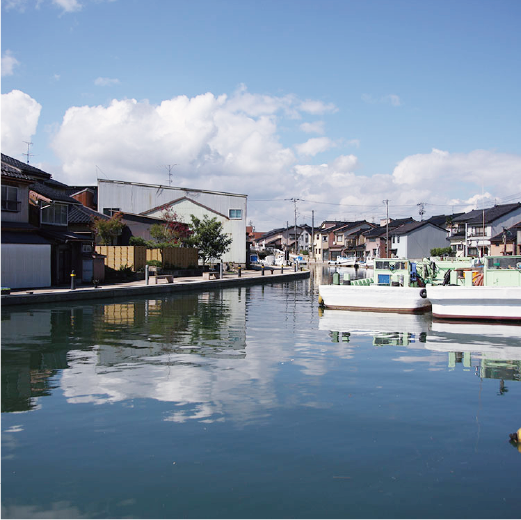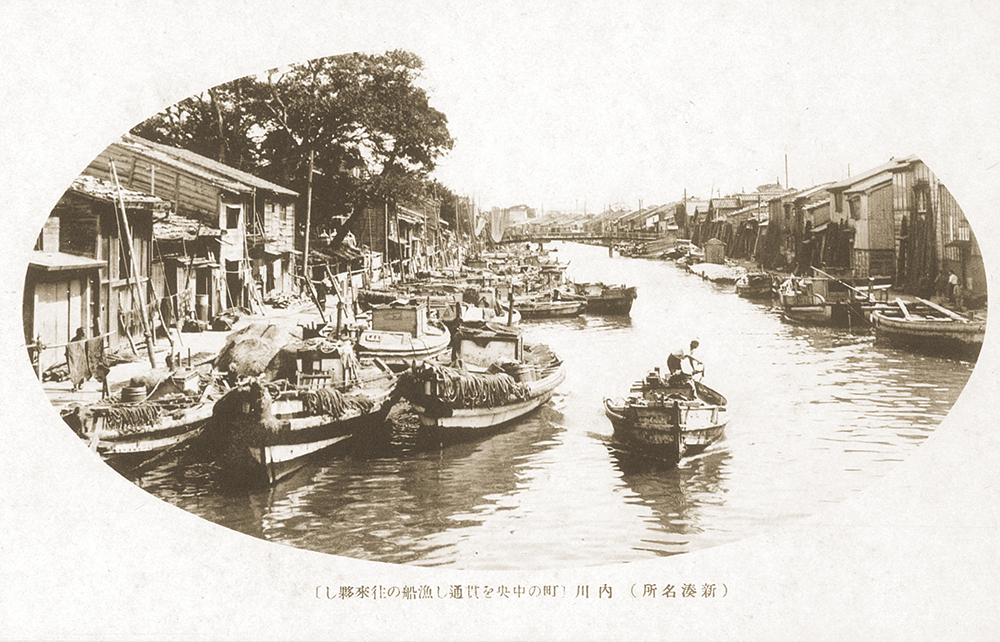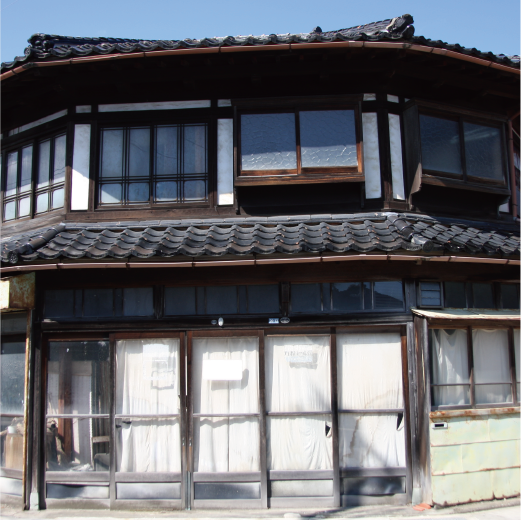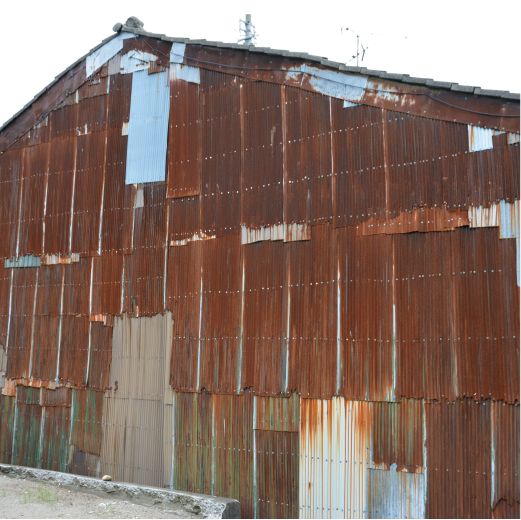
Uchikawa in Shinminato, this is an area that fishing business has been at the base of people’s lives and is still alive even today with the historical background of port town for the Kitamae-ship. Even during the period of high economic growth to the bubble boom, they kept and grew their unique culture. It is as if the “Galapagos of Toyama”.
A lot of ships that are actively used every day along gently curved river. Houses that have narrow frontage and the long depth and are built in the limited space with the neighbors close together. Overlapping roofs of houses make a zigzag skyline. The more you visit there, the more you find it interesting. We call it “Uchikawa Sampo”, means strolling around River Uchikawa.
When I look down to see the water-surface which comes just up to the edge of the revetment, the scenery looks very futuristic. Rusted galvanized iron wall, isles that are sandwiched between the wood siding walls of houses and Jizo-do (“Onzohan”) which are built corner to corner. People who are addicted to the town which heighten our emotion gather here in Uchikawa area.
To my surprise after looking up things, this river started flowing in Heian period. More over, there was a “Shugosyo” (the site for provincial administration) in Kamakura period and this area was the center of politics, economics and culture of Ecchu district. So, this area is one of the most important historical heritage that shows a port town which flourished along the river in Medieval period.
This town seemed to intentionally evade from development for no less than half a century, and it gives me an impression of foresight. It seems even odd that this town has not turned to a big sightseeing place.
I was shocked when I was informed that there are more and more empty houses in this attractive town. This is when I started thinking what we can do to stop the problem. The first answer was the cafe “uchikawa Rokkakudo” which was remodeled from an empty house.
Empty houses will increase when the town loses the population and less and less people would make family here. What accelerate it more may be “newly-built oriented”. Building after tearing down again and again.
I think it is not just a nostalgy, traditional wooden buildings are one of the most valuable cultures Japan owns.
As a matter of fact, dwelling shows the cultural level of the country and is very important. This is why I feel a strong identity from the living scenery of Uchikawa area that has been miraculously left.
This is the town that has cultural mix of fishing business and the local people’s lives and that people’s everyday lives are still exist. I believe that the day will surely come when this scenery would be praised by people all over the world.





